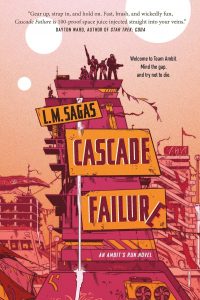Karen Burnham Reviews Short Fiction: Future SF Digest and Africanfuturism
 Future Science Fiction Digest 12/20
Future Science Fiction Digest 12/20
Africanfuturism: An Anthology, Wole Talabi, ed. (Brittle Paper) October 2020.
It’s at least February for those of you reading this column, but just the very end of 2020 as I’m writing it. As usual, I skid into the end of the year having read only a fraction of what’s available in the universe of “short fiction online” – maybe a third if I’m being particularly generous with myself. As I saw the end of this turbulent, crazy year approaching I realized I had a higher-than-average amount of international and translated fiction on my to-read list, so I decided to lean into that. With apologies to my usual-suspect venues (and with every encouragement to all readers to check out the Locus Recommended Reading list in all the short fiction categories), this column will cover as much rest-of-the-world sourced spec fic as I can cram in. Next month I’ll be putting 2020 behind me (thank goodness) and it will be all 2021 all the way.
I love Future Science Fiction Digest, and it just seems to be getting stronger as it goes. Issue #9 is a special issue dedicated to East Asian SF, and it has plenty to enjoy. The very first story, “Roesin” by Wu Guan (translated by Judith Huang) is thought provoking. Our world has been taken over by robots, and there are very few humans remaining (the translator includes a note about conveying the meaning of some archaic Chinese usages by using certain suffixes reminiscent of Golden Age SF). Resin starts out running the equivalent of a robot bar, but later turns hard into the arts. In particular, he picks up on the fashion of using human skins as decoration and instead captures a live human – Rosin. Resin starts modifying himself to be as precise a replica of the human as possible, eventually becoming the sort of symbiotic hybrid entity suggested by the title. The story ends tragically, but is enriched by the depiction of different reactions to and commentary on the “art” project. “Butterfly Blue” by Gustavo Bondoni, in contrast, imagines a much more hopeful future, even if it does start with a literal bang as the first Mongolian attempt at a crewed space mission fails on launch. The main character, Otryadyn Batu, is one of the astronauts from that launch, a national hero and a celebrity, who gets pulled into some of the behind-the-scenes politics as the Chinese step in to prevent the Mongolian space program from being completely mothballed in the wake of its embarrassing failure. There are maneuvers upon maneuvers, including an attempt to get the name of the spaceship, the Chinggis Khan, changed (the historical national hero is obviously not a positive figure to all), but eventually Batu gets to pull off some classic space heroics.
Farther out among the stars “Just Like Migrating Birds” by Taiyo Fujii (translated by Emily Balistrieri) imagines what impact the desire of Chinese people to return home for Lunar New Year might have once humanity is an interstellar species. “Formerly Slow” by Wei Ma (translated by Andy Dudak) imagines a future city that deals with resource limitations by having citizens active only one day a week, living in a kind of stasis the rest of the time. Xia Mang and his wife Xiao An are Wednesday people, but it turns out that their newborn daughter has a rare anomaly that prevents her from entering stasis, throwing their whole lives into chaos. One of the darkest tales I read this month, both literally and figuratively, comes from “Whale Snows Down” by Kim Bo-Young (translated by Sophie Bowman). Here a society of abyssal zone sea creatures is exchanging information, very poetically, about what seems at first to be a particularly large “whale fall” nutritional boost from above. It slowly becomes clear that something much more dramatic has occurred up on the surface of the oceans… a vivid reminder that the coming climate catastrophes won’t affect all portions of the Earth in the same way.
Africanfuturism (edited by Wole Talabi) is an anthology with a mission: to separate “Africanfuturism” from the “Afrofuturism” label that’s become more widely promoted in the last ten years. Introductory essays by Talabi and Nnedi Okorafor lay out the argument, and it’s a strong one, that Afrofuturism tends to prioritize Western viewpoints and voices, where Africanfuturism is poised to center writers directly associated with African countries. As such, we get a really strong set of stories all set in or based from Africa itself. There’s a lot to love here. My favorite of the volume is “Yat Madit” by Dilman Dila. Amaro is the daughter of a man locked up since she was little. She has fond memories of him, but as the story progresses we learn the dark side of his history. She runs a tech repair shop now, and he’s seeking her help to be elected to the fascinating form of government that the country has turned to: an electronically, AI-mediated council of 8,000 elected elders. She is not sympathetic and takes the path of citizen engagement with the process to proposed additional structural changes. I’ve long felt that SF doesn’t engage often enough with the nuts and bolts of government systems (often content to either assume galactic-spanning dictatorial empires or to let democracy chug along unseen in the background of near-future stories), so this was especially refreshing to see.
“Egoli” by T.L. Huchu features the musings of an elder woman one morning as she rouses herself early. She remembers back to before the Moon landings, and now her grandchildren are living lives than she could ever have imagined. This view is both hopeful and poignant. Along with the essay, Okorafor also provides the story “Sunrise“, which is a frankly hilarious account of an AI hopping onto the phone of an SF author returning home to Nigeria for a visit, becoming rather independent while disconnected from the internet, and then reacting with horror when it downloads and reads her “Rusted Robot” series. The AI is not amused, but we can be. Another near future story, with much darker overtones, is “Behind our Irises” by Tlotlo Tsamaase, imagining the lengths to which oppressive and invasive corporate contracts could affect the workforce in the future. The story of a woman slowly being transformed under the pressure is chilling. Out in outer space, we find the story “Rainmaker” by Mazi Nwonwa, imagining a family of rainmakers who have found themselves stranded on a planet in a binary star system so dry it is literally named “Arid.” Their teenage son is humiliated by these circumstances and is only convinced to stand up for himself with the encouragement of his best friend. The stories here are a wonderful blend of speculative elements and tropes deeply imbued with the cultural background of the authors. Considering this anthology is offered for free from the publisher’s website (PDF), there’s no excuse not to pick it up and find out some of the ways African authors are thinking about the future.
Recommended Reading
“Butterfly Blue”, Gustavo Bondoni (Future SF Digest 12/20)
“Yat Madit”, Dilman Dila (Africanfuturism)
“Roesin”, Wu Guan (Future SF Digest 12/20)
Karen Burnham is an electromagnetics engineer by way of vocation, and a book reviewer/critic by way of avocation. She has worked on NASA projects including the Dream Chaser spacecraft and currently works in the automotive industry in Michigan. She has reviewed for venues such as Locus Magazine, NYRSF, Strange Horizons, SFSignal.com, and Cascadia Subduction Zone. She has produced podcasts for Locusmag.com and SFSignal.com, especially SF Crossing the Gulf with Karen Lord. Her book on Greg Egan came out from University of Illinois Press in 2014, and she has twice been nominated in the Best Non-Fiction category of the British SF Awards.
This review and more like it in the February 2021 issue of Locus.
 While you are here, please take a moment to support Locus with a one-time or recurring donation. We rely on reader donations to keep the magazine and site going, and would like to keep the site paywall free, but WE NEED YOUR FINANCIAL SUPPORT to continue quality coverage of the science fiction and fantasy field.
While you are here, please take a moment to support Locus with a one-time or recurring donation. We rely on reader donations to keep the magazine and site going, and would like to keep the site paywall free, but WE NEED YOUR FINANCIAL SUPPORT to continue quality coverage of the science fiction and fantasy field.
©Locus Magazine. Copyrighted material may not be republished without permission of LSFF.







